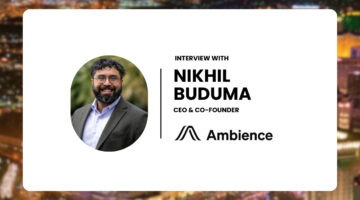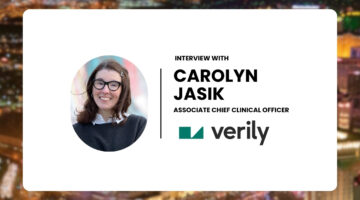
We recently published this guideline on social media at Beth Israel Deaconess Medical Center, based on the input from a multidisciplinary working group. I thought it might be useful to share with the community, since many healthcare organizations are at the early stage developing social media policies.
1. Why do consumers interact with an organization’s social site?

Ambience CEO on Personalizing the Physician Workflow
CEO shares how Ambience can help reduce administrative burden.
In general, there is a perception gap between the reasons consumers interact with companies on social sites and why the companies think they do. (Source: IBM Report: From Social Media to Social CRM)
After discounts and purchases (not applicable to BIDMC), consumers ranked reviews and product rankings, general information and exclusive information as the top reasons they follow a company.
Companies ranked learning about new products, general information, sharing opinions, and reviews and product rankings as the top reasons they think consumers follow them on social sites
Reviews and rankings are important to consumers, so we track and respond to all reviews/messages we receive. The reviews are also a great way to capture feedback about patient experience on an ongoing basis.

Verily Launches New Telemedicine Service & AI Health Tool
Verily launches a new consumer health app and the gaps it will address.
We receive reviews on all our social media sites. Some are informal, like a tweet. Some are formal reviews, like on Facebook, Yelp, Google+, etc. BIDMC monitors all sites 24/7 using a social media dashboard.
To maintain our integrity, BIDMC follows the same social media guidelines as the universal online community. This means:
- We do not delete negative posts. The only thing worse than ignoring a negative comment is deleting it. It only serves to anger the patient/consumer more and give them reason to react by telling ALL of their “friends” on social media about their experience. The exception is when a negative post uses hateful, obscene or discriminatory language.
- We do not ask for feedback or reviews from patients. Sites like Yelp have rules. One among them: “Business owners should not ask customers to write reviews. Review sites work because consumers voluntarily write reviews.” This is why Yelp, Healthgrades, etc. are able to provide consumers with as much trustworthy information as possible. Research has shown that when the consumer realizes that reviews and feedback have been solicited or influenced, they stop using it.
2. How do we respond to reviews?
We respond to all messages—both praise and criticism. When we receive a complaint:
- We respond ASAP.
- We don’t make excuses. (“We were short staffed” or “It was an unusually busy day.”)
- We apologize for the experience.
- We try to take it offline as soon as we can. We send a direct message to the reviewer.
- We resolve the issue. We immediately connect with Patient Relations to alert them to the complaint so they can follow up.
3. Why do we apologize?
We have had a few instances when a physician has felt strongly about apologizing. Some physicians are of the opinion that apologizing is an admission of error, which could lead to lawsuits.
We believe that enhancing communication reduces malpractice assertions, not increases that.
The marketing team along with Patient Relations has established a process to manage complaints/negative reviews. Our standard response in most cases is: “We are sorry that your experience didn’t live up to the high standards we set for ourselves. We will forward your message to our Patient Relations team. If you’d like to contact them directly, please call …”
4. What does a physician need to be aware of BIDMC’s social media policy?
There is risk associated with the use of social media because any content posted can reflect unfavorably on the physician as well as on BIDMC. A post conveys information about the user’s personality, values, priorities, etc. To avoid errors and prevent risks, BIDMC has created a set of guidelines to help our physicians navigate the world of social media. The full policy is available on the portal. Here are some highlights:
- Physicians cannot accept friend requests from patients.
- If a physician engages in a discussion about the hospital on a social site, she/he should disclose that they work at BIDMC. On personal feeds, if discussing BIDMC, clarify that the posts do not express the views of the hospital.
- Physicians cannot offer healthcare advice on social sites.
- Physicians must respect and follow HIPAA requirements. She/he can never disclose information about a BIDMC patient.
- She/he cannot endorse products on social media
- Physicians must never disclose proprietary information about BIDMC.
- BIDMC does not allow individual departments to open social media accounts. On rare occasions, Twitter or LinkedIn accounts are allowed. The request to open a social media account must be approved by the Social Media Policy Committee.
Photo: Bigstock
Dr. John D. Halamka is chief information officer and dean for technology at Harvard Medical School who writes at Life as a Healthcare CIO.
This post appears through the MedCity Influencers program. Anyone can publish their perspective on business and innovation in healthcare on MedCity News through MedCity Influencers. Click here to find out how.






